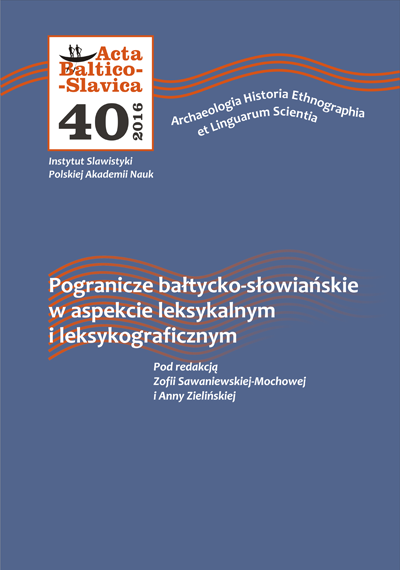Język rosyjski przełomu lat 20. i 30. XX wieku w krzywym zwierciadle trzech słowników przekładowych
The Russian language of the 1920s and 1930s in the distorting mirror of the three translational dictionaries
Author(s): Jolanta MędelskaSubject(s): Political history, Lexis, Eastern Slavic Languages, Interwar Period (1920 - 1939), Sociology of Politics
Published by: Instytut Slawistyki Polskiej Akademii Nauk
Keywords: the Russian language of the 1920s and 1930s; entry words in translational; dictionaries: Russian-German, Russian-Polish; Russian-Lithuanian;
Summary/Abstract: The author compares key word entries of three translational dictionaries: Russian- German, Russian-Polish, and Russian-Lithuanian. These are moderately-sized dictionaries published about 1930. For their respective authors (a German, a Pole, and a Lithuanian), Russian was not their native language, and yet they each mastered it wonderfully, having spent part of their lives in the Russian Empire and in the USSR. The dictionaries studied were compiled in a period of unprecedented growth in new Russian lexis. Lexical resources expanded rapidly due to violent socio-political changes and the new phenomena they brought about that needed to be named, as well as the concomitant, equally dynamic scientific and technical advances, which also caused a substantial increase in new lexis. The level of difficulty in constructing a list of key words was increased by the lack of current Russian definition dictionaries at the time. The author has shown that the editors of the Russian-German and the Russian- Polish dictionaries, that appeared in Moscow, included abundant neologisms: the most variegated Sovietisms (e.g., агитпункт, cоциал-предатель), scientific and technical vocabulary (авиация, автомобиль), acronyms (нэп, Главрепертком), as well as borrowings from the national languages of the USSR (арык, аул). At the same time, the Russian-Lithuanian dictionary published in Kovno (Kaunas) does not include a single Sovieticism, no acronyms, no “Soviet” orientalism, even a suprisingly modest showing of scientific and technical lexis (merely a few percent of the resources included in the Moscow dictionaries). This dictionary includes numerous archaic and regional vocabulary units (e.g., чаемый, чапыжник), omitted in the remaining dictionaries.
Journal: Acta Baltico Slavica
- Issue Year: 2016
- Issue No: 40
- Page Range: 263-290
- Page Count: 28
- Language: Polish

